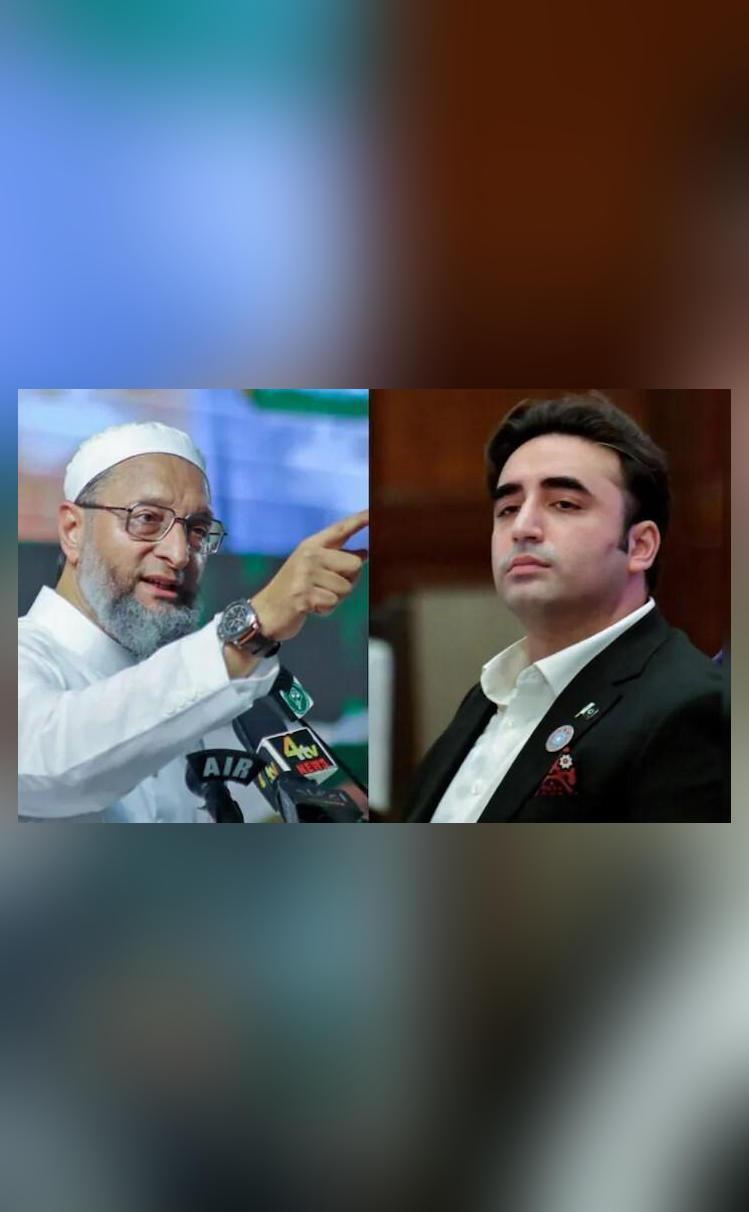
You Can’t Run Pakistan Without US Help & You’re Trying to Stare Us Down: Owaisi to Bhutto
The ongoing political tensions between India and Pakistan have been escalating, with recent remarks from Pakistani politicians sparking outrage and controversy. In the latest development, AIMIM chief Asaduddin Owaisi reacted sharply to Pakistani politician Bilawal Bhutto’s “blood will flow” remark, saying that Pakistan cannot run the country without US help and is trying to stare down India. In this blog post, we will analyze the context and implications of these remarks and their potential impact on the already fragile Indo-Pak relations.
Bilawal Bhutto’s “Blood Will Flow” Remark
In a recent speech, Bilawal Bhutto, the chairman of the Pakistan Peoples Party (PPP), threatened that “Indus is ours…either our water will flow…or their blood” in response to India’s decision to abrogate Article 370 and bifurcate Jammu and Kashmir into two union territories. His remarks were seen as a veiled threat, implying that Pakistan would go to war with India over the disputed region.
Owaisi’s Rebuke
Asaduddin Owaisi, the AIMIM chief, responded to Bhutto’s remarks, saying that unless the US gives Pakistan something, it cannot run the country. He added that Bhutto is trying to stare down India and that terrorism killed his mother, Benazir Bhutto. “If he doesn’t get that, what will you explain to him?” Owaisi asked.
Owaisi’s comments were seen as a direct response to Bhutto’s remarks, and his reference to the US aid to Pakistan was significant. Pakistan has historically relied heavily on US financial and military aid to fund its military and economy. In recent years, the US has provided significant aid to Pakistan, despite concerns over its human rights record and its handling of terrorism.
Context and Implications
Bhutto’s remarks were seen as a response to India’s decision to abrogate Article 370, which granted special status to Jammu and Kashmir. Pakistan has long claimed that Kashmir is its territory and has been supporting anti-India separatist groups in the region. Bhutto’s remarks were seen as a threat to India, implying that Pakistan would go to war over the region.
Owaisi’s response, however, was seen as a rebuke to Bhutto’s remarks and a reminder of Pakistan’s dependence on the US. Owaisi’s comments highlighted the fact that Pakistan cannot run its country without US aid and that Bhutto’s remarks were empty threats.
The implications of these remarks are significant. The ongoing tensions between India and Pakistan are a major concern, and these remarks have only added to the tension. The US has been trying to mediate between the two countries, but its efforts have been met with limited success.
The US-Pakistan relationship is complex and has been marked by periods of tension and cooperation. Pakistan has historically been a key ally of the US in its war on terror, but the US has also been critical of Pakistan’s human rights record and its support for terrorism.
Conclusion
The remarks from Bhutto and Owaisi highlight the ongoing tensions between India and Pakistan. Bhutto’s remarks were seen as a threat to India, while Owaisi’s response was seen as a rebuke to Bhutto’s empty threats.
The US-Pakistan relationship is complex and has significant implications for the region. Pakistan’s dependence on US aid is a major concern, and its handling of terrorism has been a major point of contention.
In conclusion, the remarks from Bhutto and Owaisi highlight the ongoing tensions between India and Pakistan. The US-Pakistan relationship is complex and has significant implications for the region. As the situation continues to evolve, it is essential to monitor the developments closely and urge both countries to engage in peaceful dialogue to resolve their differences.






